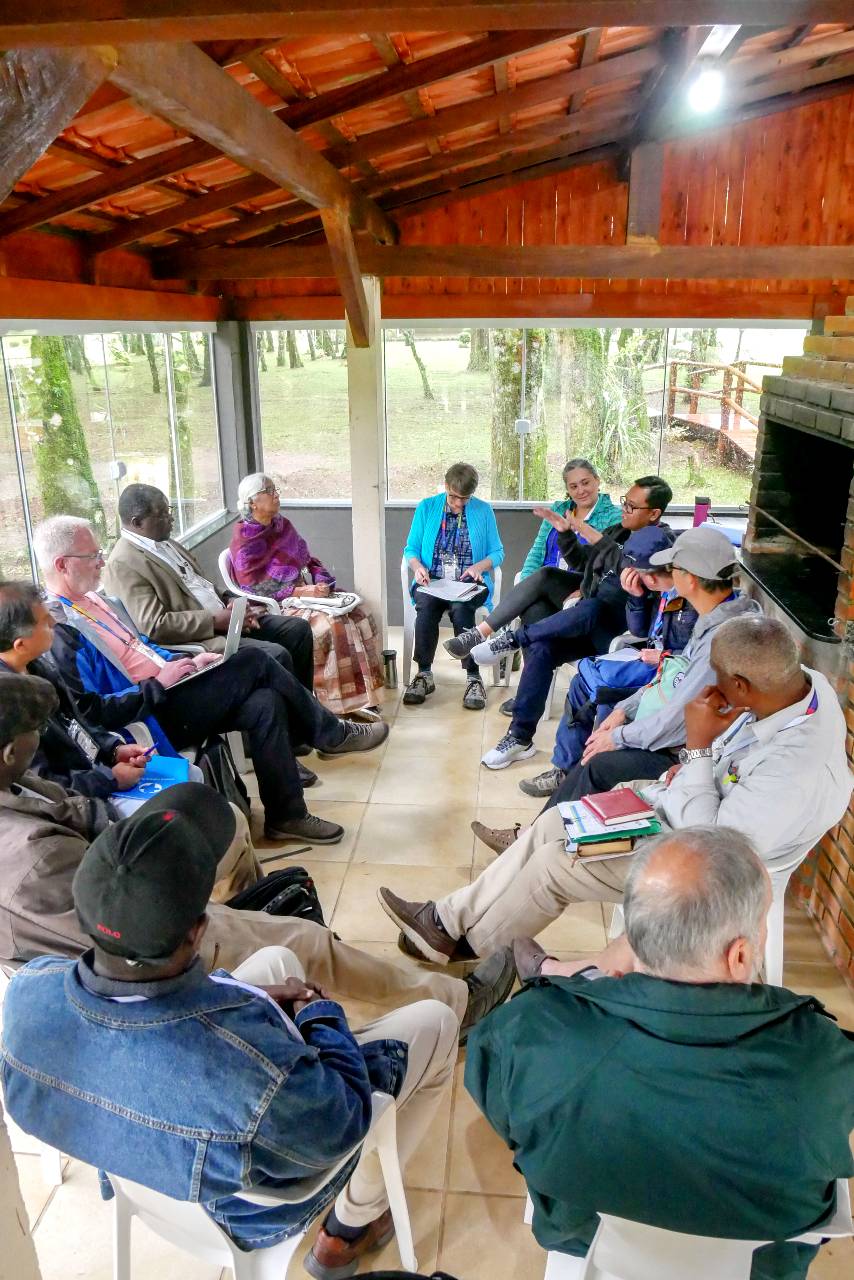“Through Mennonite World Conference (MWC), I learn what it means to be a global citizen, and that the church is much bigger than my own local congregation,” says Agus Mayanto (Southeast Asia). “We are all brothers and sisters and not strangers anymore.”
A Mennonite pastor from Indonesia, Agus Mayanto, is one of MWC’s regional representatives.
This team of 13 experienced church leaders interpret Mennonite World Conference to the national church leaders and congregations in their regions. And they advocate for the concerns and perspectives of their region to the MWC family.
Until the end of June 2024, the regional representatives were led by coordinator Arli Klassen.
“I have always loved the church and been fascinated by the church in different places around the world,” she says.
Her interest was piqued by attending MWC meetings while in another role: “How does the Anabaptist church work on the global level and what does it do?”
“I got more enthusiastic about MWC with each meeting I went to,” Arli Klassen says. She leapt at the chance to serve and work with the global church.
Jumanne Magiri Mafwiri, regional representative for East Africa, was similarly compelled by how MWC gives exposure to a bigger world. “As a child, I thought my tribe was the best one everywhere,” he says. “Now, I know that there are many different peoples with different cultures and God has made all of us.”
For Siaka Traoré, (Central West Africa), this diversity opens his mind to be more missional. “I’m inspired to see the Word of God widely – diversity belongs to God; we are all different but have similar needs.” 
For Cynthia Peacock (South Asia), MWC is crucial for “connecting outside my own country, being part of a world communion;” For Danisa Ndlovu (Southern Africa), it’s “building a family,” and for Agus Mayanto (Southeast Asia), turning strangers into brothers and sisters.
“I learn what it means to be a global citizen, and that the church is much bigger than my own local congregation,” he says.
“Sometimes I feel alone,” says Freddy Barrón (Latin America – Southern Cone), “but we have sisters and brothers all over the world.”
“Out of many, we are one people, one in the Lord,” says George Broughton (Caribbean).
“We are here as representatives of the diversity around the world,” says José Arrais (Europe). “In our polarized world we are called to be together and include each other.”
“It is only ‘with all the saints’ that we can know and experience the love of God more deeply and more richly,” says Arli Klassen. “Through our differences, we know God better (Ephesians 3).”